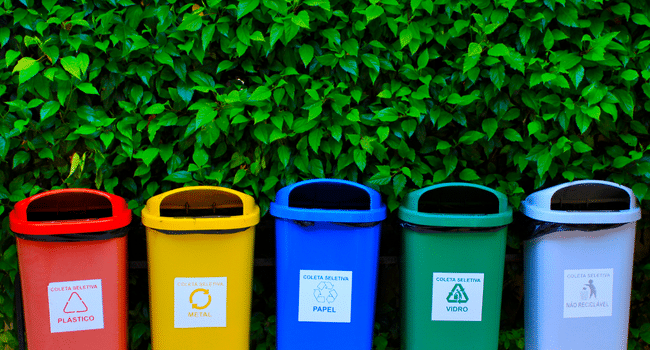Table of Contents
Waste management might not be the most glamorous topic, but hold onto your recycling bins—there’s treasure hiding in that trash!
You might wonder why anyone would get excited about waste, but here’s a little secret: turning waste into profit is one of the hottest trends in business.
Why Waste Management is a Goldmine
Let’s set the stage. Picture a world where mountains of trash magically transform into money. No, it’s not a scene from a fantasy novel; it’s the reality of a modern waste management business.
With a growing global population and increasing consumerism, the waste we produce is at an all-time high. And where there’s waste, there’s potential for profit.
Waste management presents a unique revenue opportunity. It’s not just about collecting garbage and taking it to the landfill anymore.
The industry has evolved, offering a wide range of services—recycling, composting, and energy recovery—that provide both environmental and economic benefits.
Businesses that can turn waste into resources stand to gain a competitive edge in today’s eco-conscious market.
The Economics of Waste
Understanding the economics of waste is essential for anyone looking to profit from this industry. It starts with recognizing that waste isn’t just a problem; it’s a resource.
With the right technology and innovation, waste can be repurposed into valuable products.
Consider recycling, for example. Recycling programs generate billions of dollars annually by converting recyclable materials like paper, plastic, and glass into new products.
It’s a win-win situation—reducing landfill use while creating revenue streams.
And let’s not forget about composting; converting organic waste into nutrient-rich soil is both environmentally friendly and a lucrative business opportunity.
Innovations in Waste Management
The waste management industry is ripe for innovation. New technologies are transforming the way waste is processed and creating exciting opportunities for businesses.
From advanced sorting systems to biogas production, innovation is driving efficiency and profitability.
Think about waste-to-energy technologies. These processes convert non-recyclable waste into electricity and heat, providing a sustainable energy source.
It’s a growing market, with global investments expected to surge in the coming years.
Businesses that invest in these technologies can turn waste into a consistent revenue stream while contributing to a cleaner planet.
The Role of Circular Economy
The circular economy is a game-changer in waste management. Unlike the traditional linear economy—where products are made, used, and discarded—the circular economy focuses on keeping resources in use for as long as possible.
It’s all about designing out waste and regenerating natural systems.
In a circular economy, waste is minimized, and products are designed for reuse or recycling. This creates business opportunities for companies that can innovate in product design, repair services, and recycling processes.
By adopting circular practices, businesses can reduce costs, mitigate risks, and tap into new revenue streams.
Waste as a Sustainable Resource
The concept of waste as a sustainable resource is gaining traction. Businesses are realizing that sustainability isn’t just good for the planet; it’s good for business.
Meeting consumer demand for more sustainable products and practices can enhance brand reputation and customer loyalty.
Companies that embed sustainability into their waste management practices can enjoy cost savings through resource efficiency and waste reduction.
They can also unlock revenue potential by developing sustainable products and services.
Whether it’s using recycled materials in manufacturing or offering take-back programs for old products, sustainability offers a competitive advantage.
Building a Resilient Business Model
A resilient business model is crucial for long-term success in waste management oshawa. It requires adaptability, innovation, and a commitment to sustainability.
By staying agile and responsive to market changes, businesses can thrive in this dynamic industry.
Investing in research and development is key to building resilience. Companies that continually explore new technologies and processes will be better equipped to address challenges and seize opportunities.
Additionally, collaboration with stakeholders—such as government agencies, nonprofits, and communities—can foster innovation and create new revenue streams.
Turning waste into profit is more than a trend; it’s a sustainable business strategy. With the right approach, businesses can leverage waste management to reduce environmental impact, increase revenue, and build a resilient future. Whether it’s through innovation, community engagement, or diversification, the opportunities in waste management are vast and varied.
